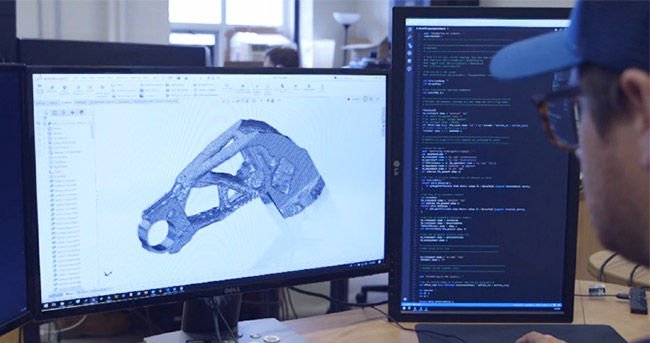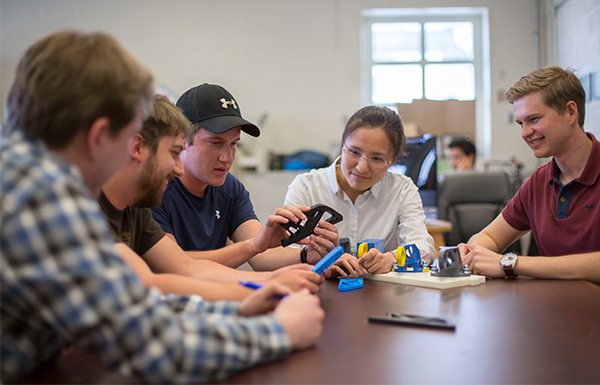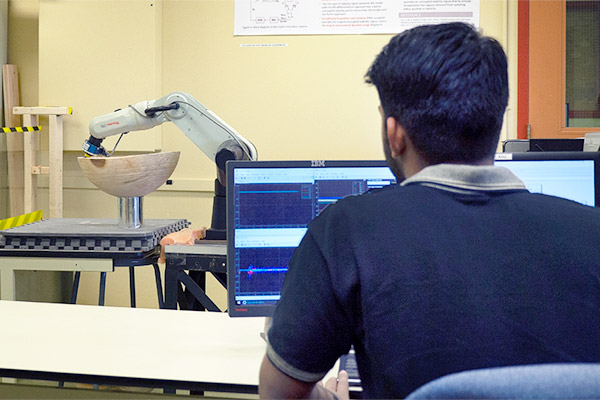The Design, Mechatronics, and Manufacturing Group within the Department of Mechanical and Materials Engineering encompasses a wide range of research expertise.
One area of study involves the development of multi-disciplinary systems design and topology optimization methodologies, allowing designers to produce performance-driven concepts and obtain valuable component insights, such as optimum material configuration and composition. These tools have been successfully used to reduce the weight of various vehicle and aircraft structures without compromising passenger safety. The complementary application of a Design for Additive Manufacturing (DfAM) approach (see Figures 1 and 2) enables further improvements through part consolidation, optimization of AM performance measures (e.g., the number of support structures, ease of their removal), and time savings associated with product development. The success of this research program has attracted over $3 million of competitive industry and government funding over the past few years.

Research in machine health monitoring combines intelligent sensor-based monitoring, diagnostics, and prognostics to enhance machinery performance and reliability throughout a system’s useful life, which is of great value to a number of industries. Artificial neural networks are applied to effectively bridge the datadriven and physics-based analysis domains. The group’s related expertise in the use of structural dynamic analysis for vibration and noise reduction adds to their strength in design optimization for automotive and aerospace structures, as well as biomedical devices such as magnetic resonance imaging (MRI) scanners.
Another area of existing and emerging strength involves automatic control, machine vision, and robotics, including bio-inspired, soft and multi-material robotic systems design. This research has automation applications for manufacturing processes (see Figure 3), the navigation of autonomous mobile robots, and the development of personal ambulatory robot companions. Researchers in these fields interact with collaborators from theme one (“Intelligent systems and ICT”) and are active members of Ingenuity Labs. Another new direction involves magnetic micro and nano robots for healthcare applications such as tumour treatments.
Members include fellows of Engineers Canada, the Engineering Institute of Canada (EIC), and the Canadian Society of Mechanical Engineers (CSME), as well as associate editors of Mechanism and Machine Theory and the American Society of Mechanical Engineers’ (ASME) Journal of Mechanisms and Robotics. The group’s research is supported by substantial funding from leading industrial partners, such as Bombardier, GM Canada, Magna, and Pratt & Whitney.

